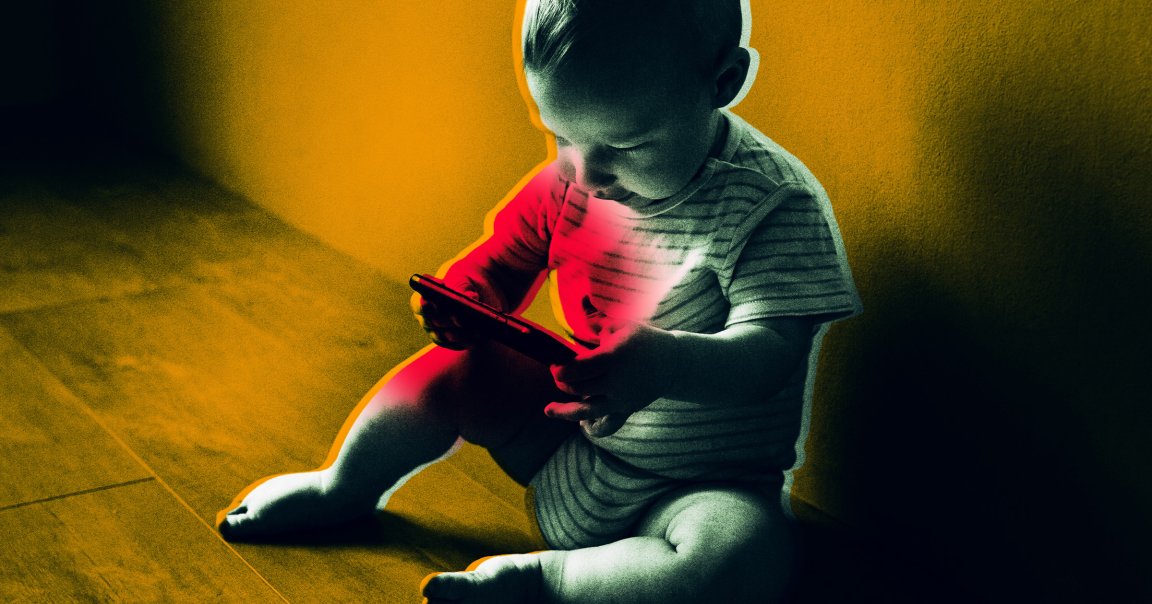
Children who are provided with access to smartphones before the age of 13 are, per a jarring new study, far more likely to suffer severe mental health problems down the line.
Published in the Journal of Human Development and Capabilities, this new paper out of a neuroscience startup called Sapien Labs found that among current young adults in Generation Z, the first generation to grow up with smartphones, the younger that use of the gadgets began, the worse the mental health outcomes were.
Using longitudinal data from the Global Mind Project, a massive mental health database assembled by Sapien, a team led by the company’s cofounder and chief scientist Tara Thiagarajan found that among the more than 100,000 18-to-24-year-olds whose outcomes they tracked, those who got phones when they were younger experienced more suicidal ideation, aggression, reality detachment, and hallucinations as they aged.
In that same cohort, girls reported lower self-image, self-worth, confidence, and emotional resilience, and boys were less calm, stable, and empathetic as compared to their counterparts who got their first smartphones when they were above the age of 13.
That age in particular matters because, as Thiagaran and advocacy groups like Wait Until 8th insist, kids aren’t neurologically or developmentally ready to be exposed to social media on personal devices until they’re 13.
“This calls for urgent action limiting access of children under 13 to smartphones as well as more nuanced regulation on the digital environment young people are exposed to,” the study leader told CNN.
As Thiagaran explained in a press release, there are lots of factors that lead to Sapien’s new results, including “social media access, cyberbullying, disrupted sleep, and poor family relationships.” Those factors appear to lead to adult mental health symptoms that stray from traditional diagnostics, she said, and “can be missed by studies using standard screeners.”
Along with advising parents to not give their kids smartphones until at least the age of 13, Thiagaran and her team are boldly calling on global policymakers to “adopt a precautionary approach, similar to regulations on alcohol and tobacco, by restricting smartphone access for under 13s, mandating digital literacy education, and enforcing corporate accountability.”
We’ve already seen the latter when Meta CEO Mark Zuckerberg took to the Senate in early 2024 to apologize to the families of children harmed by his social network — though his statements left much to be desired.
Beyond calls to action, this study adds to a growing body of evidence suggesting that smartphones aren’t just nebulously “bad” for children, as many a Luddite will bemoan, but that they can have real and severe mental health consequences for them.
More on kids and tech: Vast Numbers of Lonely Kids Are Using AI as Substitute Friends